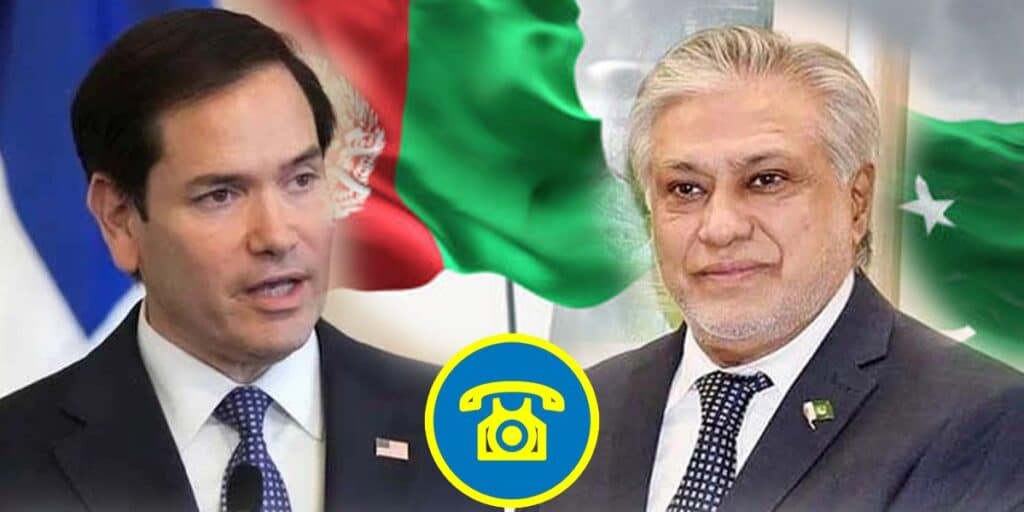Pakistan’s Deputy Prime Minister and Foreign Minister Ishaq Dar and U.S. Secretary of State Marco Rubio held a telephonic conversation in which the two top diplomats agreed to work together on resolving the issue of U.S. military equipment left behind in Afghanistan after the American withdrawal.
According to a statement issued by the Foreign Office, the call was initiated by Foreign Minister Dar to discuss bilateral relations, regional security, and economic cooperation. The U.S. State Department also released a statement confirming high-level communication between the two countries.
The discussion included the issue of American tariffs on Pakistani exports and the need for fair and balanced trade ties. Dar and Rubio further exchanged views on enhancing bilateral engagement in the minerals sector, with Pakistan expressing interest in expanding trade opportunities for American companies.
The call comes amid growing security concerns in the region. Since the Taliban took control of Afghanistan following the U.S. withdrawal in 2021, there has been a sharp rise in terrorist attacks targeting security forces and law enforcement agencies in Pakistan.
According to a 2022 U.S. Department of Defence report, military equipment worth $7 billion was left behind in Afghanistan, much of which was reportedly seized by the Taliban. While U.S. forces attempted to destroy a significant portion of the equipment during the final weeks of withdrawal, Taliban forces still acquired substantial weaponry. The group has refused to return any of the military assets and has instead urged the U.S. to provide more advanced weapons to fight ISIS.
During the call, Ishaq Dar reaffirmed Pakistan’s commitment to strengthening its partnership with the United States and emphasised the importance of enhancing cooperation in trade, investment, and counter terrorism. Secretary Rubio expressed a strong interest in deepening economic ties with Pakistan, particularly in the minerals sector, and stated that future relations between the two nations would be shaped by mutual collaboration in commerce and investment.
Rubio also acknowledged Pakistan’s sacrifices in the fight against terrorism, noting the severe human and economic losses the country has endured. He reiterated Washington’s desire to expand counter terrorism cooperation and commended Pakistan’s contributions to global security.
Both leaders agreed to maintain close contact and continue working together to advance shared interests.
The development follows a recent announcement by U.S. President Donald Trump, who imposed a 29 percent tariff on imports from Pakistan. The new tariff regime, which began with a 10 percent base rate implemented on April 5, is set to increase to 29 percent starting April 9, posing a serious challenge to Pakistan’s export sector. With a population of over 240 million, Pakistan now faces significant trade barriers in one of its key export markets.





